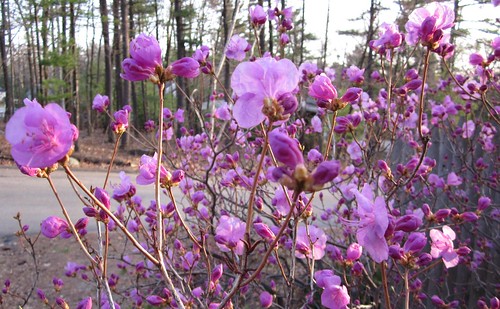 As I write, I’m watching snow flakes drift gently from the sky, adding to the quintessential snow scene outside. My vantage point inside is warm, with plenty of electricity to turn the furnace fan, run this computer, and light the Christmas tree.
As I write, I’m watching snow flakes drift gently from the sky, adding to the quintessential snow scene outside. My vantage point inside is warm, with plenty of electricity to turn the furnace fan, run this computer, and light the Christmas tree.
A week ago, an unexpected ice storm caused massive power outages in New Hampshire and Massachusetts, as falling tree limbs, branches, even entire trees brought down the power grid. Our power company said 322,000 customers in New Hampshire lost power at the peak of the disaster.
Our home went dark shortly after 11 pm on Thursday; power wasn’t restored until around 5 pm on Tuesday, roughly 4 days 18 hours later. I know a couple of people who didn’t get power back until yesterday (Friday), more than a week after losing it. My wife, kids, and I spent two nights in a hotel and three nights with gracious friends who had electricity and spare bedrooms.
Reflecting on the experience, I have a few observations.
Modern society is completely dependent upon the electric and telecommunications infrastructure. The reliability of these services is so high, we take them for granted and, in many cases, have little or no recourse when they fail. Without heat or light, my family had to seek shelter elsewhere.
We live in an age of instant gratification. Having to live without power for days and not knowing when it would be restored was contrary to our experience and expectations. My anxiety and frustration increased in proportion to the number of days we were forced to do without. I was not alone. One online posting quipped “If we put a man on the moon, why can’t they restore power in less than a week?”
The men and women who tirelessly worked around the clock to repair the damage, organize the effort and crews, and communicate to the public deserve our deep appreciation. When they finally have a chance to catch up on their sleep, I hope they will find deep satisfaction from their technical skills and, more importantly, their connection to the fabric of our humanity.
With no power, our cordless phones didn’t work; the phone line via fiber connection failed when the back-up battery drained. However, our cell phones did not fail, as long as we found a way to keep them charged. More impressive, though, is that the cellular base station network that relays our calls, texts, and Internet access remained powered and working throughout the ordeal.
For those who could access the web, at least from time to time, an online community formed around the ice storm. We tracked restoration efforts, followed one another’s experiences, provided encouragement, shared gallows humor, and celebrated when the lights finally came on. I feel a connection with people I have not met in person — a reflection of the Internet’s ability to form community.
Forced to choose my priorities, I prefer heat to light.
With deep gratitude, I think I will go take my morning shower. As hot as I can bear it.
 Send to Kindle
Send to Kindle



